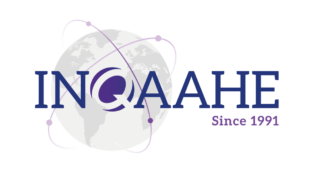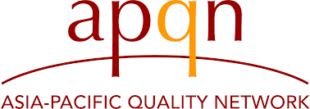Frequently Asked Questions about THE-ICE Accreditation & Membership
- What is accreditation?
- Why should a potential student or an institution care if a programme is accredited?
- What are the different types of accrediting organisations?
- What does THE-ICE offer?
- How does THE-ICE accreditation process work?
- Why does an institution need accreditation specific to TH&E if it already has Business School accreditation?
- Why does an institution need more than one accreditation?
- Does this mean that an institution with unaccredited programmes is no good?
- Who accredits the accrediting bodies?
- Can individuals become members of THE-ICE?
What is accreditation?
Accreditation is typically regarded as an extensive quality review process conducted by an organisation that is external to the education institution being reviewed. Institutional accreditation is often undertaken by government departments or appointed agencies, including THE-ICE, for legal registration reasons, whereas course or programme accreditation and quality assurance is often undertaken by professional bodies and other private accreditation organisations.
Accreditation has become increasingly important in a number of professional areas, and in some specialised areas, students graduating from non-accredited programmes may be unable to join a professional association, gain registration, or find relevant employment.
Why should a potential student or an institution care if a programme is accredited?
Around the world, there are thousands of institutions offering tourism, hospitality, events, and culinary arts (TH&E) programmes. Prospective students, as well as their parents and career counsellors, want to be sure that a programme can deliver graduate outcomes and a quality education experience. They will also want to know whether the institution’s programmes are well regarded by the industry and future employers.
Internally, accreditation is seen as an independent ‘mark of quality’ that reflects positively on the programmes offered by the institution. Accreditation bodies typically provide ongoing input and play an important role in the institution’s internal review processes. THE-ICE is able to help an institution benchmark itself both nationally and globally through initiatives such as the annual student satisfaction survey, THE-ICE ISB-SB (International Student Barometer and Student Barometer™) and THE-ICE Benchmarking Rating Reports.
What are the different types of accrediting organisations?
It is the role of some regulatory bodies to accredit entire institutions, whereas other, more specialised, bodies focus on particular types of education programmes. In many countries, the national accrediting body for institutions is a government body, but this is not always the case. In certain countries, institutional accreditation or registration may be carried out by not-for-profit but government-approved bodies. At the more specialised level, the vast majority of accrediting bodies are professional organisations (such as a Medical Association) or not-for-profit organisations whose focus is on quality assurance and enhancement, such as THE-ICE.
What does THE-ICE offer?
THE-ICE is a self-governing not-for-profit organisation and specialised international accrediting body focusing specifically on TH&E (tourism, hospitality, events, and culinary arts) programmes offered in vocational and higher education sectors. Unlike traditional accreditation agencies, recognising and assuring excellence is only part of the service that THE-ICE offers its members. While THE-ICE aims to assure and enhance quality through institutional accreditation, it is also committed to promoting and developing excellence through THE-ICE ISBSB Student Satisfaction Survey, the provision of signature events such as THE-ICE International Panel of Experts (IPoE) Forum, and fostering scholarly activity in and among its members through initiatives such as THE-ICE Research Grant Scheme. THE-ICE is also committed to supporting and developing global quality assurance through partnerships and engagement with regional, national, and international quality assurance agencies.
How does THE-ICE accreditation process work?
Pre-Accreditation
- Applicant institutions should register their interest by contacting THE-ICE directly at accreditation@the-ice.org to receive a THE-ICE Pre-accreditation Application – Institutional Profile template and further information. The focus of this stage is to establish the applicant institution’s credentials and likelihood to meet/align with THE-ICE Standards of Excellence.
- Following successful completion of the Institutional Profile and approval by THE-ICE Executive Team, the applicant institution is invited to apply for Accredited Membership of THE-ICE.
- In the event that the applicant institution does not, or does not yet, meet the criteria and Standards, they may be invited to apply as an Observer of THE-ICE, where they will be supported by THE-ICE Executive Team to apply for Accredited Membership within three (3) years.
Accreditation
- Applicant institution completes THE-ICE Accreditation Application, a self-review document with a focus on self-reflection and with the purpose of addressing THE-ICE Standards of Excellence.
- The completed Accreditation Application is assessed by Auditor/s of the independent THE-ICE Assessment Panel. The auditors will prepare and deliver an Accreditation Assessment Report to the applicant institution for comments upon completion.
- Auditor/s of THE-ICE Assessment Panel conduct a site audit, visiting the campus of the applicant institution to verify the claims made in the Accreditation Application. This site visit will include inspections of campus facilities by THE-ICE Auditors as well as observation and meetings with the applicant institution’s teaching staff, administrative support staff, students, alumni, industry advisory board and all relevant stakeholders. The auditors will prepare and deliver a Site Audit Report to the applicant institution for comments upon completion.
- With the approval of the applicant institution, the Accreditation Assessment Report and Site Audit Report are presented to THE-ICE Board of Directors along with the auditors’ recommendation based on their findings. With the approval of THE-ICE Board, the applicant institution is invited to become an Accredited Member of THE-ICE. As an Accredited Member, programmes are accredited for a period of five (5) years, after which Re-accreditation is required to maintain accreditation and membership of THE-ICE.
- Once approved as an Accredited Member, institutions operating as part of an ‘education group’ may be eligible to nominate Affiliate Members from within the same group, subject to the relevant criteria being met.
Please visit the Application Procedure for Accreditation & Membership of THE-ICE page for further information, or contact THE-ICE directly at accreditation@the-ice.org.
Why does an institution need accreditation specific to TH&E if it already has Business School accreditation?
Within the higher education sector, a number of TH&E (tourism, hospitality, events, and culinary arts) programmes are incorporated under a Faculty of Business or School of Business, which may carry accreditation from bodies such as AACSB, EQUIS, or AMBA. However, these generic business accreditation bodies are typically not focused on the specifics of TH&E programmes.
One particular problem facing many TH&E programmes is that generic recommendations about and changes to the wider business curricula (core programmes, programme structure, etc.) can end up affecting more focused TH&E programmes. Education issues specific to TH&E programmes (internships, practical courses, etc.) means that it is important that accreditation is undertaken by a relevant accreditation body such as THE-ICE.
Why does an institution need more than one accreditation?
In TH&E (tourism, hospitality, events, and culinary arts) education, multiple accreditations are becoming increasingly common. There are a number of reasons for getting more than one accreditation:
- Different accreditation bodies may focus on different academic programmes (e.g. tourism only, or hospitality only).
- Some accreditation bodies may have an international focus, while others may be more focused on accreditation that is only relevant to a specific country.
- Some accreditation bodies only focus on a specific programme type (e.g. AMBA is focused on MBA programmes).
- Having more than one accreditation from different, independent bodies can be viewed as a ‘mark of quality’ and may make an institution more attractive to potential students and partner institutions.
The desire for multiple or additional accreditations is also a recognition of the increasing importance that accreditation plays in both the internal processes and external influence of a higher education institution.
Does this mean that an institution with unaccredited programmes is no good?
Offering programmes that have not been accredited by an external body means that potential students (or an institution evaluating a potential partner) should carry out careful research on the institution and its programmes.
Institutional accreditation should not be confused with programme accreditation. While an institution may be accredited or ‘licensed’ to operate and teach students, that does not mean its specific programmes are well regarded by the industry, former students, or other education institutions. Institutions offering TH&E (tourism, hospitality, events, and culinary arts) programmes can vary considerably in terms of their curriculum, industry relevance, staff qualifications, expertise, and facilities. Accreditation by THE-ICE demonstrates their commitment to education excellence as they are all subject to peer review, quality assurance, and a benchmarking process.
From an institutional point of view, the rapid globalisation of education means that many universities, private hotel schools, and vocational colleges are now engaged in all sorts of institutional arrangements such as articulation agreements, student exchange, and joint offerings of qualifications. It can be difficult to ascertain the legitimacy of an institution, let alone to assess the quality of its programmes or how well regarded they might be by the industry. Institutions that have passed through a rigorous independent accreditation and quality assurance process are not only much more likely to prove to be suitable partners but will also minimise the potential risk of association.
Who accredits the accrediting bodies?
Although there is no global system for recognising international education accrediting bodies such as THE-ICE, we have established numerous formal partnerships with national accreditation agencies, further reinforcing the credibility and reputation of THE-ICE and the services we provide. Notably, THE-ICE’s origin as an initiative of the Australian Federal Government (2004–2008) provides assured credibility.

INQAAHE
THE-ICE is a Full Member of INQAAHE (International Network for Quality Assurance Agencies in Higher Education), the peak global body for national accreditation agencies.

APQN
THE-ICE is proud to be a Full Member of APQN (Asia Pacific Quality Network, joining in 2019.
ECA

THE-ICE has been a member of ECA (European Consortium for Accreditation) in higher education, an association of recognised accreditation and quality assurance agencies in Europe, since 2015. In addition, THE-ICE CEO sits on the Financial Committee of the ECA.
Can individuals become members of THE-ICE?
In line with THE-ICE’s commitment to inclusivity and diversity, revisions to THE-ICE constitution approved at the AGM in October 2019 expanded our membership categories and, for the first time, made it possible for individuals to become members of THE-ICE.
This new category of membership offers the opportunity to individuals who are not representatives of member institutions to become members of THE-ICE, enabling them to engage with and support the organisation and, in return, provides a number of significant benefits:
- Attend International Panel of Experts (IP0E) Forum at member rate
- Participate in THE-ICE Research Grant Scheme (alongside member institutions)
- Participate in THE-ICE webinars
- Ability to nominate individuals, including yourself (with the support of another member), to serve as a Director on THE-ICE Board
- Vote at General Meetings
- Be part of THE-ICE global network
If you wish to apply for Individual Membership of THE-ICE, please download and complete the Individual Member Application Form and submit it to accreditation@the-ice.org
